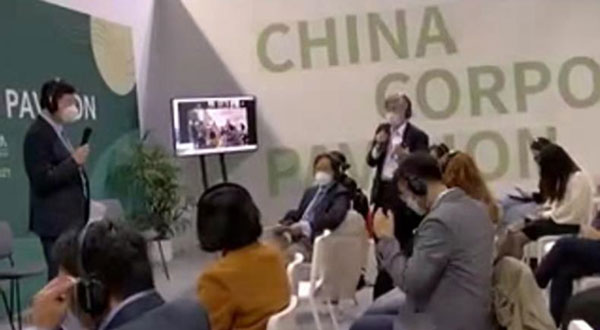On 11 November 2021, hosted by the Global Climate Action Initiative (GCAI), the 26th United Nations Conference of Parties on Climate Change (UNFCCC COP26) side event “Forum of Energy Transition and Natural-based Solutions: Practices from ASEAN-China Regional Cooperation” was held in Glasgow, the United Kingdom. The forum was presided over by Mr. Wang Yi, Vice President of the Institute of Science and Development, Chinese Academy of Sciences. Mr. Xie Zhenhua, China’s Special Envoy on Climate Change and Co-chairman of GCAI, Mr. Chen Dehai, Secretary-General of the ASEAN-China Centre (ACC), and Mr. Li Haiyan, Secretary-General of GCAI, delivered speeches. Government officials, NGO representatives and experts from China, Indonesia, Myanmar, the Philippines and Viet Nam spoke at the forum.
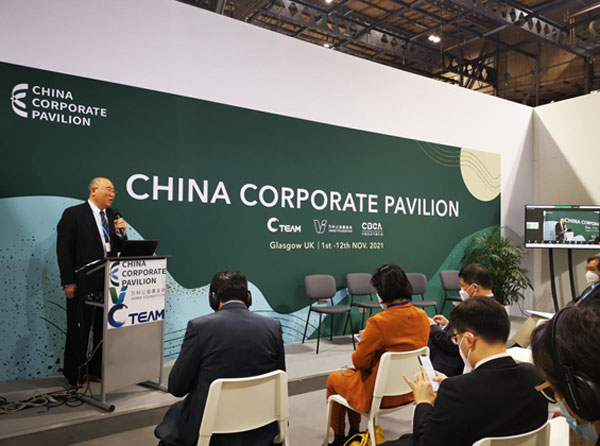
Mr. Xie Zhenhua stated that China and ASEAN Member States (AMS) are developing countries, face similar challenges and have a lot in common in addressing climate change. There are great potentials for cooperation between the two sides in the fields of energy structure transition, non-fossil energy development, natural ecological environment restoration, forest conservation to increase carbon sinks, oceans and coastal wetland ecosystem protection such as mangroves and carbon market. China will earnestly implement the three suggestions put forward by President Xi Jinping in his written statement at the World Leaders Summit of Climate Change, including upholding multilateral consensus, focusing on concrete actions and accelerating the green transition. He said China will continue strengthening bilateral and regional policy dialogue and practical cooperation with AMS in the fields of climate change and biodiversity protection, so as to benefit the peoples of China and AMS and contribute to regional and global climate change efforts. It is hoped that all sectors of society in China and AMS will work together to create an example of regional cooperation in addressing climate change, and contribute wisdom and solutions to the construction of global ecological civilisation.
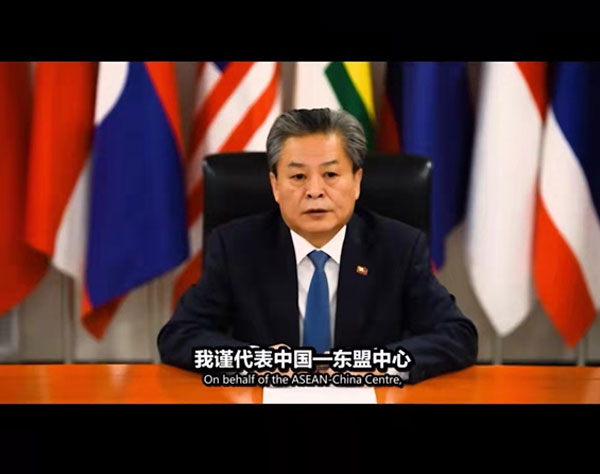
Secretary-General Chen Dehai said that this year marks the 30th anniversary of ASEAN-China dialogue relations and the ASEAN-China Year of Sustainable Development Cooperation. Green and sustainable development cooperation has always played an important part in enhancing ASEAN-China relations. The two sides have made unremitting efforts in the fields of climate change, environmental protection, ecological diversity, renewable energy, etc. ASEAN and China jointly established the China-ASEAN Environmental Protection Cooperation Centre and adopted the Framework of ASEAN-China Environmental Cooperation Strategy and Action Plan (2021-2025). China also signed agreements with several AMS on addressing climate change, and actively provided technical and personnel support to ASEAN through training, seminars and other forms of cooperation. As nature-based solutions, ASEAN-China cooperation on renewable energy and mangrove conservation can be an important breakthrough point in addressing the challenges brought by climate change. ACC hopes to take this side event as an opportunity to strengthen cooperation with all parties concerned and start a new journey of ASEAN-China cooperation on green and sustainable development.

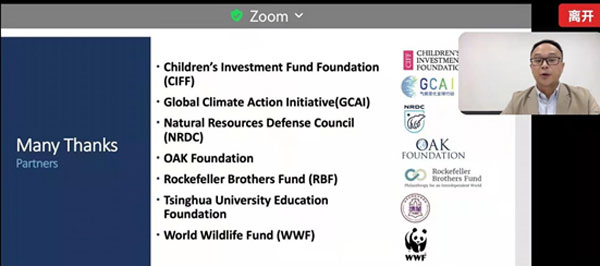
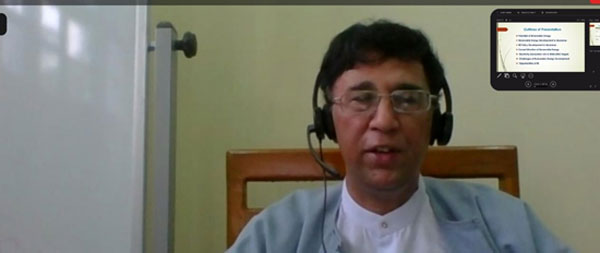
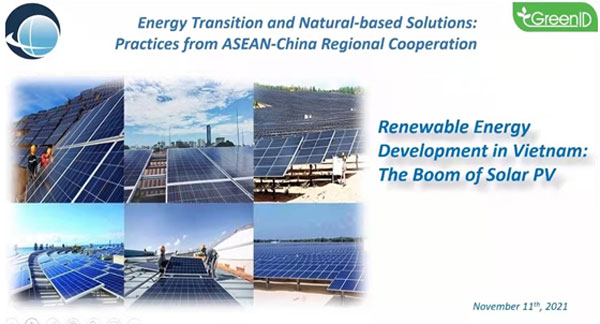

The side event consisted of two parts, “Renewable Energy Development and Cooperation between AMS and China” and “Joint effort to facilitate mangrove conservation practices as natural-based solutions between AMS and China”. About 100 participants attended the forum online and offline, including representatives from the Sustainable Global Environment Institute of China, Ministry of Science and Technology of Myanmar, Institute for Essential Services Reform and Yagasu Foundation of Indonesia, Green Innovation and Development Centre of Viet Nam, and Oceanus Conservation of the Philippines. Other representatives from Japan, Europe and the U.S. attending the UNFCCC COP26 were also present at the forum. The speakers respectively introduced the current status, policy guidelines and development plans of renewable energy and mangrove conservation in their countries. The participants fully exchanged views on strengthening joint actions and expanding cooperation on climate change.

